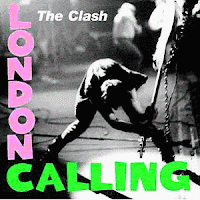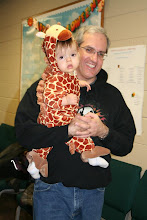I was informed recently that the nautical museum Nauticus in Norfolk, Virginia is having a pirate exhibit while One Ring and I will be in Virginia Beach for the Christmas holiday. As I was doing the happy dance (a sight not to be missed), further research revealed that the traveling exhibit is of the Whydah - the same exhibit that I've been trying to see for quite some time. Why the Whydah (sorry, couldn't resist)? Well, for one, it is the only pirate shipwreck every recovered. She went down off the coast of Cape Cod, Massachusetts in 1717. And since I was born in Massachusetts, I feel somewhat close to this particular ship and her captain, Sam Bellamy. His story is quite unique among the Brethren of the Coast - he fell in love with an upper class woman, and, unable to prove his "worth" to her family via wealth, took up piracy until he could raise the money. Once he had the sum needed, he quit the trade (very un-piratical) and tried to get back to Cape Cod. Unfortunately, his ship was caught in a storm - possibly a hurricane - and sank with all hands. So, in a way, it's a Romeo and Juliet kind of story.
Well, I need to get back to work. I just figured I'd post a quick note detailing one of the reasons why I'm looking forward to my vacation!
Wednesday, December 16, 2009
Pirate Bliss!
Thursday, December 3, 2009
It Arrived!
My early Christmas present came in yesterday, and it is beautiful! It's a Laguna LE300, and despite the lousy strings that came from the factory, it has an awesome sound. I spent the evening playing with the pickup settings (it has a 5-way switch), and continuing to work on my assignment from my lessons. I forgot to see if it could fit in my Epiphone case, though, so transporting it to lessons or to get the strings replaced may be a problem. I'll have to work on that tonight. In other news, friends of ours had twins last night! It's a wonderful (obviously) event for them, made bittersweet only by the fact that this comes a little more than a year after they lost a baby girl at birth. But even with this in the back of our minds, we're all celebrating. One Ring and I will be heading over to the hospital to see the proud parents and meet the boys.
In other news, friends of ours had twins last night! It's a wonderful (obviously) event for them, made bittersweet only by the fact that this comes a little more than a year after they lost a baby girl at birth. But even with this in the back of our minds, we're all celebrating. One Ring and I will be heading over to the hospital to see the proud parents and meet the boys.
Well, group went off without a hitch today, and a minor crisis was avoided with another patient. This afternoon might get a little busy, but, for the most part, it will just be paperwork and cleaning the desk for an inspection that's supposed to take place tomorrow. The doctor comes back on Monday, so I'll have to write a memo to bring her up to speed on the chaos that's gone on while she's been in India and Los Angeles.
Okay, time to check on some other issues and get to work.
Tuesday, December 1, 2009
Mu
I was reading Zen Guitar by Philip Toshio Sudo last night. While it seems like there's a "Zen and the art of ..." book for everything under the sun (Although Zen and the Art of Motorcycle Maintenance actually IS about Zen and not fixing your cycle), most really don't seem to grasp - in my humble opinion - either Zen or the topic the writer is trying to link to Zen. Zen Guitar, though, is the real deal.
The piece that I read last night dealt with the whole concept of "Mu," which literally translated means, "No" or "nothing." However, that is only part of the meaning of the word. Mu occurs several times in Zen koans, which are proverbs or stories which on the surface seem nonsensical but are actually keys to understanding concepts. The most famous, perhaps, is "What is the sound of one hand clapping?" Anyway, there's another famous one, and that's where Mu comes in.
Mu occurs several times in Zen koans, which are proverbs or stories which on the surface seem nonsensical but are actually keys to understanding concepts. The most famous, perhaps, is "What is the sound of one hand clapping?" Anyway, there's another famous one, and that's where Mu comes in.
In ancient China, this monk walks up to his Zen master and asks, "Does a dog have Buddha nature?" In other words, is a dog capable of enlightenment? When I worked in the church, I was asked by one of my youth, "Does my dog have a soul?" While not exactly the same thing (and it would take far too long to explain the difference!), it's a good enough analogy for now.
So the monk asks his question, expecting a "yes or no" type of answer, because that's what everyone expects for a question like that. Either a dog has it, or the dog doesn't. No middle ground.
But the Zen master just says, "Mu." Now if mu meant no, the dog didn't have Buddha nature, that would be the end of it. But that's not what Mu in this context means. Here it means something akin to "no meaning." Or, in a quote I pulled from Wikipedia, "Your question cannot be answered because it depends on incorrect assumptions."
The goal of a koan is to open a door to the pathway of Zen. In this case it's to destroy the typical human habit of either / or thinking. Again, either the dog has it, or not. Either this is important, or it isn't. Either I'm working, or I'm not. But what Mu sets up is a way of thinking that removes either / or thinking. The dog has it and the dog doesn't, and it doesn't really matter either way. I'm working and at the same time writing this (There have been several pauses as I've written this to address various crises). Either / or thinking requires there to be absolutes - independent agents at work in the situation. Zen thought states that there is no such thing. "Dog" is an artificial construct; a name for a being that we gave it to distinguish it from other furry animals (of course, "furry" and "animals" are constructs as well, but bear with me!). "Buddha-nature" is also an artificial distinction between states of being. If one considers that nothing is independent of anything else, and everything came from something or a combination of things, which themselves have their origin in other things, then eventually one can go far enough back to see that "everything" just "is" and is connected to "everything else."
Take the guitar that I just purchased, which should arrive on my doorstep tomorrow (Joy!). When does a guitar stop being a guitar? When does a combination of wood, lacquer, wire strings, circuits and pickups, tuners and tremolo bridge, become a guitar? When assembled? When disassembled? Is there a difference? And more importantly, does it even matter? Follow the guitar through its coming into being, and you end up with trees, metal ore, and chemicals. Go back even further, and you have the big bang (or God speaking the universe into being, take your pick). So the guitar that's showing up on my doorstep tomorrow was in the big bang, as was everything else that is, was, and will be. Everything was connected, is connected and cannot be truly independent of anything else, for everything has its origin in everything else.
So, does the dog have Buddha-nature? Mu is indeed the right answer, for the dog does and does not exist at the same time, and Buddha-nature does and does not exist. It's a pointless, and unanswerable question, because to fall into yes and no categories is to miss out on what is reality itself.
What in the world does this have to do with playing the guitar? Well, last night I got frustrated with my level of playing. After practicing several times a week, and some weeks every single night, last night's lesson had some highs and lows. I'm still working on the second solo from "Comfortably Numb," where there's a lot of changes in terms of 8th notes, 16th notes, and 32nd notes. So I had to go over this one segment again and again and again, and occasionally came to feel like the cover of this Clash album: But after finally getting it right, I came home, chilled out, and read the book I mentioned above. And in the section on Mu, there was this quote by Bruce Springsteen. I don't have it with me, but The Boss basically says this, "When you play guitar, you have to hold a lot of contradictory information in your brain and make it all work at the same time. On the one hand, when I'm playing, I'm playing like it's the most important thing in the world. And it is. On the other hand, I know that it's only rock and roll. And it is."
But after finally getting it right, I came home, chilled out, and read the book I mentioned above. And in the section on Mu, there was this quote by Bruce Springsteen. I don't have it with me, but The Boss basically says this, "When you play guitar, you have to hold a lot of contradictory information in your brain and make it all work at the same time. On the one hand, when I'm playing, I'm playing like it's the most important thing in the world. And it is. On the other hand, I know that it's only rock and roll. And it is."
Both / And. Neither / Nor. Just is.
Hope this makes sense.
By the way, does anyone know where I can get a decal of the Japanese script that I put up here? I think it would look great painted on my Epiphone!



